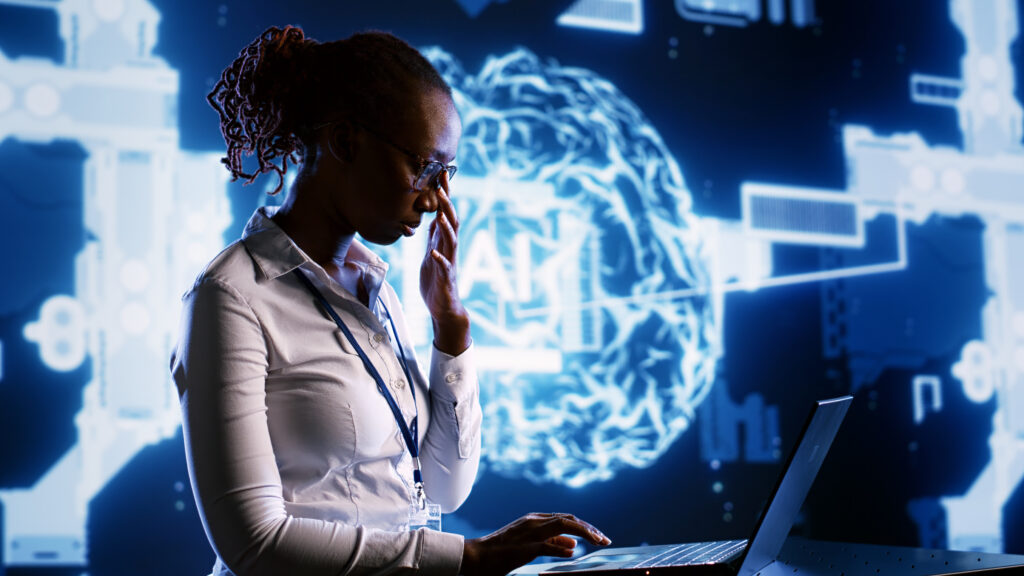Introduction: The Brain: A Frontier of Discovery
The human brain is the most complex organ in our body, yet it remains one of the least understood. Recent technological advancements are changing that narrative, shedding light on the intricate workings of the brain. Neuroscience is no longer confined to labs; it’s now merging with technology to address critical issues like Alzheimer’s, depression, and stroke recovery.
In this article, we explore groundbreaking technologies transforming brain health, from brain-computer interfaces (BCIs) to AI-powered diagnostic tools, and how they’re paving the way for a future where brain disorders are managed and cured.
The Rise of Brain-Computer Interfaces (BCIs)
Imagine controlling a computer with your thoughts or helping a paralyzed patient regain mobility through neural signals. BCIs, which connect the brain directly to external devices, are no longer science fiction; they’re here and advancing rapidly.
Applications in Medicine
- Stroke Recovery: BCIs interpret neural activity to help stroke survivors relearn motor skills.
- Neuroprosthetics: Advanced BCIs enable amputees to control prosthetic limbs using their thoughts, restoring functionality and independence.
- Mental Health Support: BCIs are being explored as a non-invasive way to treat conditions like anxiety and PTSD by regulating brain activity.
These interfaces promise to revolutionize treatment and the quality of life for millions.
Advanced Brain Mapping and Imaging
Understanding the brain’s structure and function has been a monumental challenge, but technology makes the invisible visible. Brain mapping techniques like functional MRI (fMRI) and magnetoencephalography (MEG) provide high-resolution images of brain activity.
Impact on Neuroscience
- Early Disease Detection: Advanced imaging can identify markers of diseases like Alzheimer’s before symptoms appear.
- Surgical Precision: Neurosurgeons now use 3D brain maps to navigate delicate surgeries, reducing risks and improving outcomes.
- Cognitive Research: Scientists can study memory, emotions, and decision-making in real time, unlocking new insights into human behavior.
These tools are the GPS of the brain, guiding researchers and clinicians toward better understanding and treatments.
AI and Machine Learning in Brain Health
Artificial intelligence is the silent hero behind many neuroscience breakthroughs. Machine learning algorithms analyze vast datasets, identifying patterns that humans might overlook.
Applications in Brain Health
- Neurological Diagnostics: AI models detect subtle changes in brain scans, aiding in the early diagnosis of conditions like epilepsy or multiple sclerosis.
- Mental Health Assessment: AI-powered apps monitor speech patterns, facial expressions, and activity levels to assess depression and anxiety.
- Drug Discovery: AI accelerates the identification of compounds that could treat neurological disorders, shortening the drug development timeline.
AI improves accuracy and democratizes access to advanced care, making these innovations available to underserved communities.
The Future: Personalized Brain Health
The future of neuroscience is deeply personal. With wearable neurotech devices, individuals can monitor their brain health in real time. These devices offer insights into stress levels, sleep quality, and cognitive performance, empowering users to take proactive steps toward better brain health.
Emerging Innovations
- Memory Enhancement Devices: Non-invasive stimulation techniques to boost memory retention.
- Brain Health Apps: Apps offering tailored mental exercises and meditation routines based on individual cognitive profiles.
- Neurofeedback Training: Programs that teach users to regulate brain activity for optimal performance and well-being.
Personalized neuroscience bridges the gap between research and everyday health, making brain care accessible and actionable.
Challenges and Ethical Considerations
While technology opens new doors, it also raises questions:
- Privacy Concerns: Who owns brain data, and how is it protected?
- Bias in AI Models: Ensuring diversity in training data to avoid biased outcomes.
- Accessibility: Making advanced technologies affordable for all socioeconomic groups.
Neuroscience must balance innovation with responsibility, ensuring these breakthroughs benefit humanity.
Conclusion: A Brain-Healthy Future
The intersection of technology and neuroscience redefines what’s possible in brain health. From diagnosing diseases earlier to offering personalized treatments, these innovations promise a healthier, more resilient future for the human mind.
As technology continues to push boundaries, it’s not just solving problems; it’s inspiring a new era of discovery, one neuron at a time.
